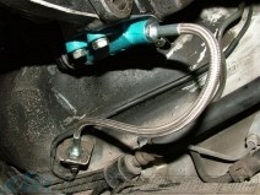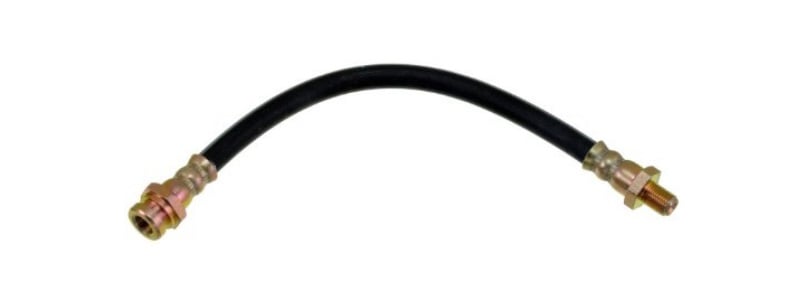What does a clutch hose actually do?

Alright, so here’s the lowdown on clutch hoses. If you drive a manual (like a Toyota Hilux, Mazda BT-50, Suzuki Swift or even something a bit more flash like a Peugeot 308), your clutch hose is the bit that carries hydraulic fluid from the clutch master cylinder to the clutch slave cylinder. It’s what lets the power from your left foot get all the way down to your gearbox. Most of these hoses are heavy-duty rubber and have a metal braid so they can twist and flex with the engine when you’re bouncing around Cameron Rd’s potholes or crawling through Te Rapa traffic. Without this little hose, changing gears would be a real mission.
What kills a clutch hose?
Honestly, you don’t see clutch hoses on the “must replace every year” list. But after a while, they just start giving up, especially if you’re driving back and forth from Morrinsville or cruising the backroads to Ngaruawahia every day. All that heat from stop-start traffic on Ulster St, roadworks, and our famously moody Waikato weather — hot as anything in January, then cold and damp in winter — it just cooks the rubber. Eventually, hoses get hard, then start cracking or perishing.
Every once in a while, we see a job where the inside of a clutch hose swells up or clogs. That can stop the fluid dead, so your clutch either stops working completely, or gets jammed part-way in. Had a Honda Accord in the other week from Taupiri — clutch pedal was soft as, wouldn’t come back up. Turned out the hose had ballooned inside and was only letting fluid go one way. Not good.
What are the warning signs of a dodgy clutch hose?
Gear shifts get sticky or grindy — If you’re fighting to get your little Suzuki Jimny or VW Golf into gear, or it just feels harder than normal, that’s a sign. Sometimes you even lose whole gears if the fluid’s leaked out.
Spots of fluid under your car — If you spot a leak under the engine, around the clutch, or even near the wheels, don’t ignore it. It’s usually brake fluid (yep, clutch and brakes share the same stuff in most cars). It’s thin and clear-ish. Not only is it nasty for the paintwork if you leave it, it can cause big trouble with both stopping and shifting gears.
No resistance on the clutch pedal — That pedal should feel firm, with a bit of spring-back. If it flops straight to the floor, or doesn’t bounce back, there’s a good chance the hose has sprung a leak or is stuffed inside. Saw a lady in from Cambridge last month, her Nissan Navara just had nothing in the pedal. Quick fix — new clutch hose, bled it up, good as new.
Clutch hose help in Hamilton
If you reckon something’s up with your clutch, or you’re finding shifting is a pain, bring your car into the workshop. We see it all — the old Holdens chugging over from Rototuna, families in hybrids from Glenview, BMWs or Hyundai i30s from over in Chartwell. One of our techs will give the clutch system a proper look, find out what’s stuffed, and sort you out with a reliable fix using quality parts. Fast, done right, and no mucking about.
For honest, no-nonsense clutch hose replacement and car diagnostics in Hamilton, pop into Grimmer Motors. We’ll get you changing gears again without the hassle.

